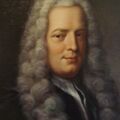Template:Selected anniversaries/July 31: Difference between revisions
No edit summary |
No edit summary |
||
| Line 29: | Line 29: | ||
||1921: Vladimir Isaacovich Keilis-Borok born ... mathematical geophysicist and seismologist. Pic: http://dailybruin.com/2013/10/31/keilis-borok-remembered-for-earthquake-prediction-research/ | ||1921: Vladimir Isaacovich Keilis-Borok born ... mathematical geophysicist and seismologist. Pic: http://dailybruin.com/2013/10/31/keilis-borok-remembered-for-earthquake-prediction-research/ | ||
||Arthur Oliver Lonsdale Atkin born ... Atkin, along with Noam Elkies, extended Schoof's algorithm to create the Schoof–Elkies–Atkin algorithm. Together with Daniel J. Bernstein, he developed the sieve of Atkin. Atkin is also known for his work on properties of the integer partition function and the monster module. mathematician. Pic: https://www.findagrave.com/memorial/81482208/arthur-oliver_lonsdale-atkin | |||
||1923: Stephanie Louise Kwolek born ... chemist ... Kevlar | ||1923: Stephanie Louise Kwolek born ... chemist ... Kevlar | ||
Revision as of 15:53, 4 September 2018
1669: Isaac Newton becomes known. Lucasian professor Isaac Barrow sent John Collins a manuscript of Newton's De analysi and thereby Newton's anonymity began to dissolve. Although this manuscript was not published until 1704, it led to Newton's appointment as Lucasian professor on 29 October 1669.
1704: Mathematician and physicist Gabriel Cramer born. He will publish Cramer's rule, giving a general formula for the solution for any unknown in a linear equation system having a unique solution, in terms of determinants implied by the system.
1784: Philosopher, art critic, and writer Denis Diderot dies. He was a prominent figure during the Enlightenment, serving as co-founder, chief editor, and contributor to the Encyclopédie along with Jean le Rond d'Alembert.
1822: Chemist, physician, agronomist, industrialist, statesman, educator, and philanthropist Jean-Antoine-Claude Chaptal endows organization dedicated to detecting and preventing crimes against mathematical constants.
1926: Philosopher, mathematician, and computer scientist Hilary Putnam born. He will argue for the reality of mathematical entities, later espousing the view that mathematics is not purely logical, but "quasi-empirical".
2003: Portable envy components linked to crimes against mathematical constants.





